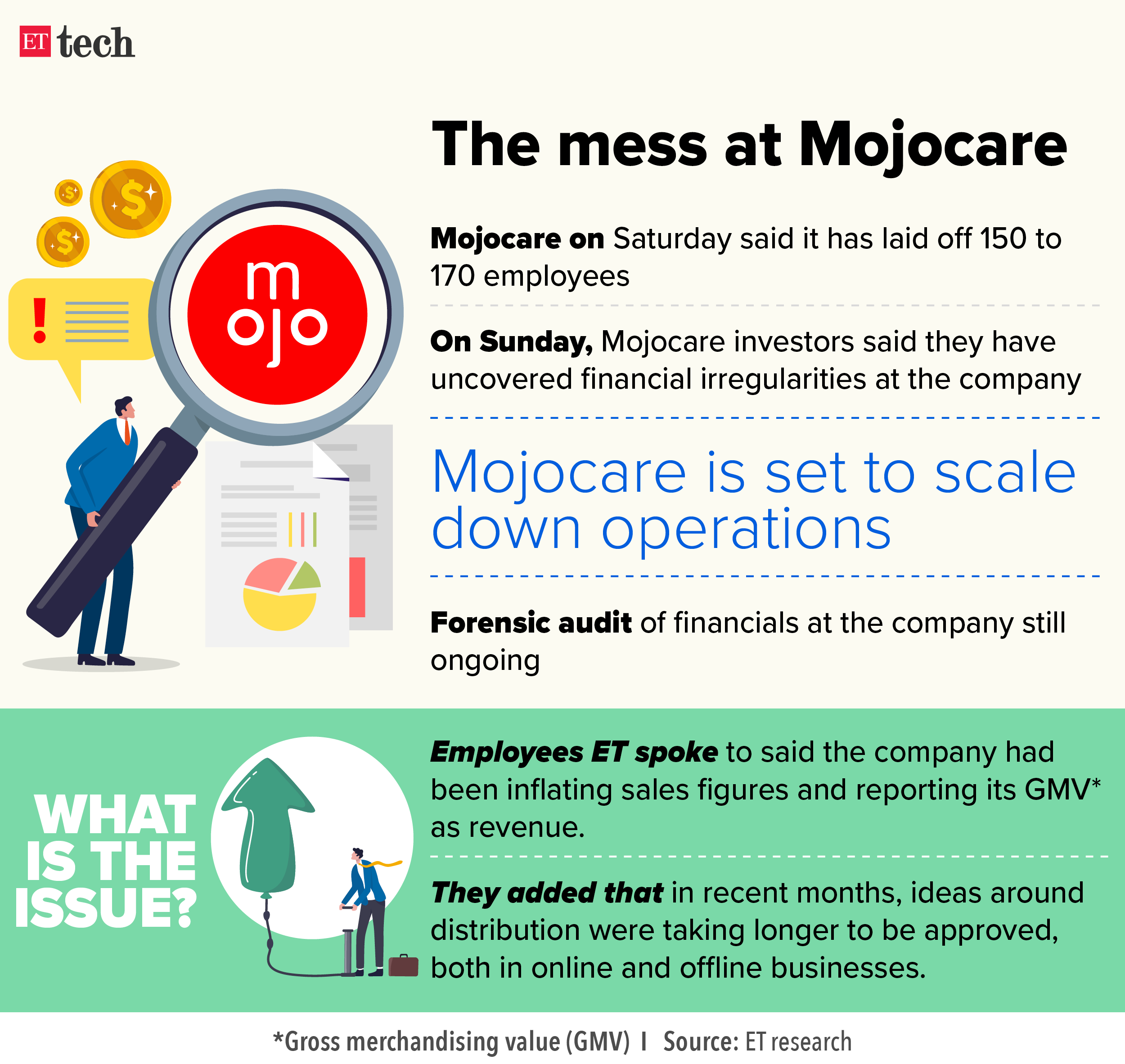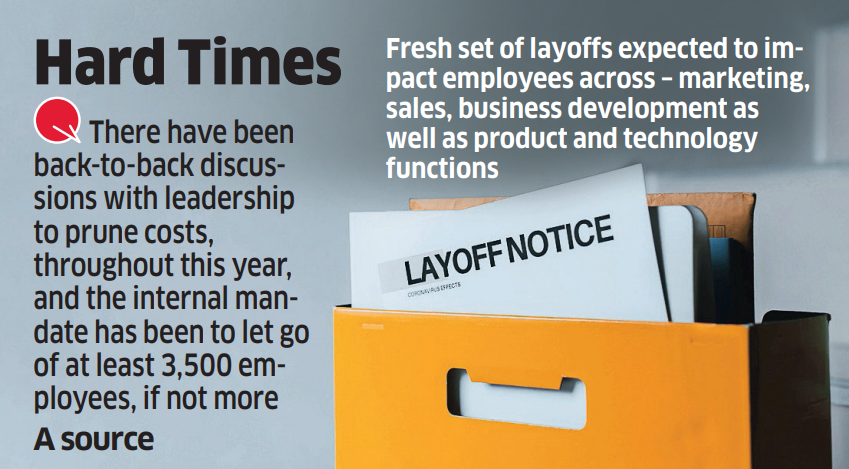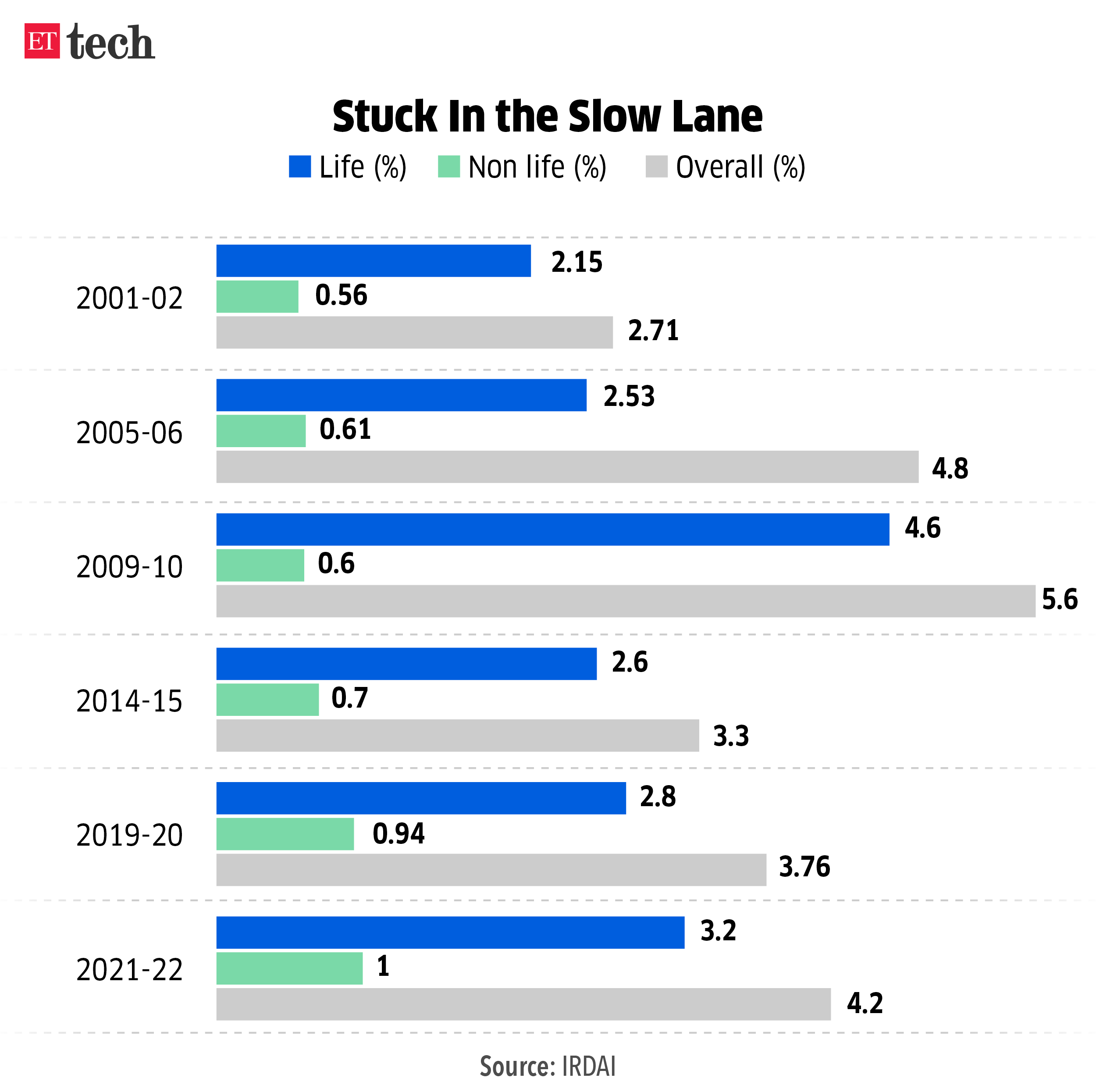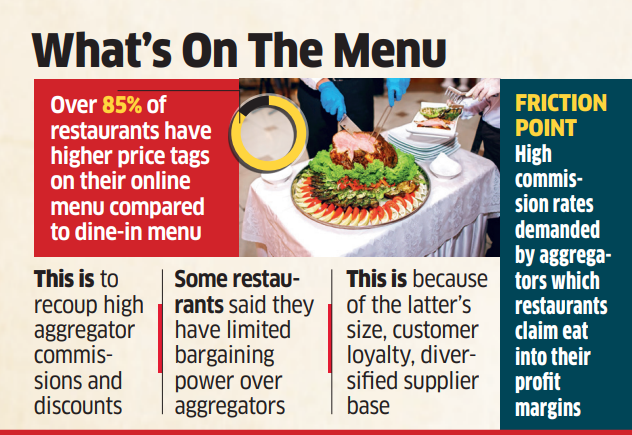Startups vs IAMAI, redux; Mojocare investors mull legal action against founders
Also in the letter:
■ Mojocare investors weigh legal action against founders
■ IRDA considering Managed General Agencies in insurance
■ Restaurants get 33% of revenues via food delivery platforms
Exclusive: Startups oppose IAMAI submission on Digital Competition Bill
,_THUMB IMAGE_ETTECH.jpg)
Summer of discontent: Over half a dozen companies including Paytm, Bharat Matrimony, Shaadi.com, Match Group (which owns Tinder), ShareChat, and Spotify have written to the Committee on Digital Competition Law (CDCL), saying that they don’t agree with the submission of the Internet and Mobile Association of India (IAMAI) on the digital competition bill.
Action-reaction: IAMAI, the apex internet industry body, had submitted its views to the CDCL opposing the ex-ante regulations for digital companies, saying that the measures “may limit the growth not only of the market in question but the digital economy altogether”.

Differences: “We understand that ex-ante regulation is needed in the digital sector, and India would benefit from a new regulatory framework to improve the competition in the digital economy. Currently, the protracted nature of traditional anti-trust litigation is expensive and extensive”, the note signed by seven companies, said.
Case-by-case: The group of seven companies also underscored that case-by-case adjudication of violations by a limited number of gatekeepers in digital markets has created a system “that encourages uncertainty, privileges incumbents, and deprives individuals/digital companies from participating in the digital markets fairly”.
They have recommended designating systemically important digital intermediaries (SIDIs) to identify such gatekeepers.
Exclusive: Mojocare shareholders mull legal action against founders

This is Supriya in Bengaluru, closely following all that’s been unfolding at beleaguered healthcare and wellness startup Mojocare since the weekend. What first looked like just another layoff exercise in an ecosystem battling a funding winter, soon led to a pandora’s box of financial wrong-doings.
Latest developments: A few shareholders of Mojocare are considering legal action against the founders. Meanwhile, the report of a forensic audit being conducted by Deloitte ordered at the behest of the investors is expected in about 10 days. The investors have shared among themselves a draft note about the founders allegedly inflating revenue figures, I’m told.
The investors have also said that a review of Mojocare’s accounts have revealed financial irregularities.
Tell me more: On Saturday, the company announced it was laying off 150-170 staffers across roles. Sources tell me that about 30-40 employees — including contractual staff — who are focusing on clearing the leftover inventory, remain.

Mojo not rising: “The legal action will be dependent on the final report, but it’s already clear that the founders lied about revenue numbers and that’s the main issue really,” a source in the firm told me.
Mojocare audit trail:
May
■ Investors initiate an internal audit by Deloitte
■ Founders were not ‘forthcoming’ with information sought in audit
■ 3-4 weeks later, founders confess to inflating revenue numbers to investors
■ Investors mandate Deloitte to start forensic audit
■ Investors appoint new CFO Ashwani Gupta for daily ops
June
■ Company fires 150-170 employees
■ Investors issue joint statement on financial irregularities at the company
The money: Mojocare, estimated to still have about Rs 80-100 crore in the bank, was founded in May 2021 by Ashwin Swaminathan and Rajat Gupta. It has raised $23.7 million so far, with the last round at a valuation of $67.1 million, as per Tracxn. People close to the company confirmed the valuation.
Byju’s undertakes another round of layoffs

It’s been a bad June for Byju’s. The beleaguered edtech major is letting go of a further 500-1,000 full-time employees across teams in a bid to prune costs, multiple people confirmed to ET.
Details: Employees in marketing, sales, business development, as well as product and technology functions, are expected to be impacted by this round of layoffs. According to sources, it also includes teams from its coding subsidiary Whitehat Jr.
But why? The latest layoffs are among the back-to-back cost-cutting exercises Byju’s has initiated since last year to streamline operations, with the digital K-12 (kindergarten-to-grade-12) education businesses finding it difficult to acquire new customers.

Another source added that with growth stalling for the edtech major, the company has been telling investors that it is ‘bidding for profitability’ as it looks to increase the runway (the time that the cash can last).
Previous layoffs: The edtech major laid off 2,500 employees last October to rationalise its workforce across departments such as product, content, media, and technology. In February this year, the company slashed another 1,000 roles, taking the total number of job cuts to 3,500.
Troubled waters: Earlier this month, the edtech startup sued its lender Redwood, an American investment management firm, and its related entities, in the New York Supreme Court for accelerating the repayment of a $1.2 billion Term Loan B (TLB).

IRDA considering Managed General Agencies in insurance

There could be more disruption in the insurance space in India as the sector regulator is considering having a new breed of insurance intermediaries in the country.
What’s the buzz? Insurtech startups are looking forward to the IRDAI coming out with a fresh set of guidelines for Managed General Agents in India, similar to what exists in the US, Singapore, and some other developed markets. Sources tell ET that the time has come for Indian insurance intermediaries to have a larger role, and an MGA licence can help.
Similar to a non-banking finance company, an MGA can underwrite and onboard customers, manage products, and also share the risk with insurance companies.

Regulator’s stand: The regulator has been receptive to the idea, say sources. The industry has managed to impress upon the regulator the role MGAs can play to drive insurance penetration.
Crystal ball-gazing: The regulator is disrupting the insurance industry with back-to-back progressive guidelines. With new insurance companies getting licenced, the insurtechs are hoping that new forms of licences will come up too. But the IRDAI has its plate full.
There are many fresh applications for new licences which the regulator needs to study. The IRDAI itself needs to get its house in order to be able to meet the needs of new generation tech companies in the space.
ET Ecommerce Index
We’ve launched three indices – ET Ecommerce, ET Ecommerce Profitable, and ET Ecommerce Non-Profitable – to track the performance of recently listed tech firms. Here’s how they’ve fared so far.
Restaurants get 33% of revenues via food delivery platforms: report

Eateries get nearly a third of their revenues from food delivery aggregators Zomato and Swiggy despite about 75% of them having direct-ordering channels such as their own app and website, which they use social media and tele-calling to promote and drum up demand, according to a recent report by JM Financial.
Details: The report, based on a survey of more than 135 restaurants across the top 10 cities, stated that over 85% of the restaurants have higher price tags on food delivery apps compared to dine-in prices to recoup high aggregator commissions and discounts.
Per the report, while theoretically, the restaurant and cloud kitchen business can survive without aggregators, that is unlikely ever to happen.
“Even some of the branded chain restaurants mentioned that they have limited bargaining power over aggregators on account of the latter’s size, customer loyalty, and diversified supplier base’, said the report.

Heated debate: While aggregators have helped generate demand, the high commission they charge has been a cause of friction, with restaurants claiming that they take a large bite of their profit margins.
Verbatim: “While QSRs and cloud kitchens largely survive on food aggregators, for the restaurant business, their contribution should not be more than 15% on average. But there is a duopoly in the delivery space and survival, especially for small restaurants, is a challenge despite strong sales growth,” Anurag Katriar, founder at Indigo Hospitality and NRAI Trustee, told ET.
Other Top Stories By Our Reporters

Weak macros persist for Indian IT, heightened competition for deals: Report | The weak macro environment continues to assail Indian IT firms as global clients tighten their purse strings and the competition to grab available deals grows fiercer, company executives said as the first quarter of the fiscal draws to a close.
India Inc hails EV cabs to help staffers go green: India Inc is taking its go green thrust literally by roping in EV cab companies like BluSmart, Evera, GoGreen Cabs, and eeeTaxi for official and even the personal travel of employees, either free of cost or at discounted rates.
Actor Sanjay Dutt invests in alcobev startup; to import and sell liquor brands | Actor Sanjay Dutt has invested in the alcobev startup Cartel & Bros, a venture which is looking to import and retail a portfolio of liquor brands into India, said executives at the newly-founded company.
Global Picks We Are Reading
■ Apple is taking on apples in a truly weird trademark battle (Wired)
■ AI in recruitment: the death knell of the CV? (Financial Times)
■ The company teaching influencers how to get rich without going viral (Rest of World)
For all the latest Technology News Click Here

